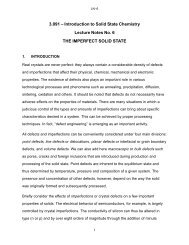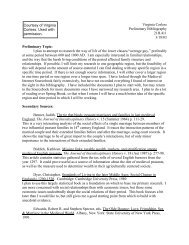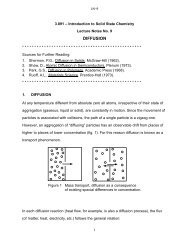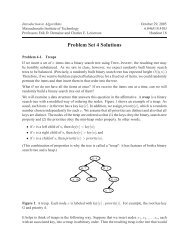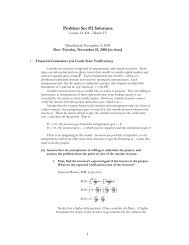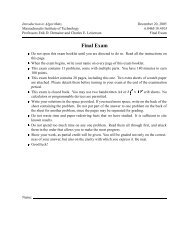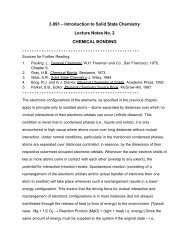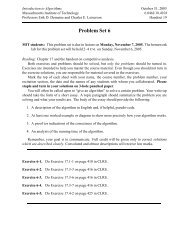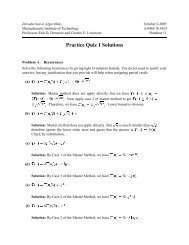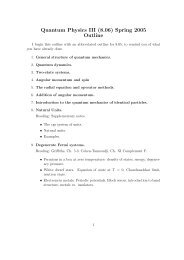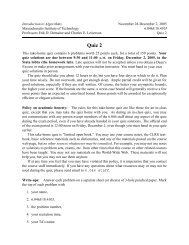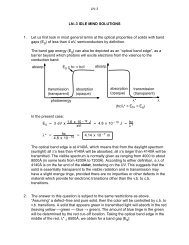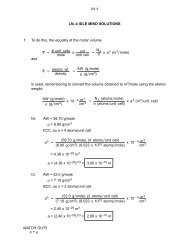Using Foreign Languages in the Middle Ages
Using Foreign Languages in the Middle Ages
Using Foreign Languages in the Middle Ages
Create successful ePaper yourself
Turn your PDF publications into a flip-book with our unique Google optimized e-Paper software.
9 to re<strong>in</strong>force <strong>the</strong> nobility’s privileges. A GalloRoman would have to learn Frankish for a<br />
political or adm<strong>in</strong>istrative position, but most seemed not to care. Pierre Flobert’s claim that<br />
GalloRoman speakers “were aware of <strong>the</strong>ir position of strength [as Lat<strong>in</strong> speakers] and made<br />
absolutely no attempt to learn Frankish” is unsubstantiated, but perhaps true. Gregory of<br />
Tours, a GalloRoman who delights <strong>in</strong> record<strong>in</strong>g any conflict <strong>in</strong>volv<strong>in</strong>g Franks, mentions no<br />
10 l<strong>in</strong>guistic ones <strong>in</strong> his History of <strong>the</strong> Franks. He does spr<strong>in</strong>kle Frankish terms through his<br />
narrative, but <strong>the</strong>y cannot have been <strong>in</strong> widespread use – like Old Norse, Frankish left beh<strong>in</strong>d<br />
few loanwords when it disappeared, only place names.<br />
Postconquest England is <strong>the</strong> most wellknown medieval bil<strong>in</strong>gual society. AngloNorman<br />
(<strong>the</strong> <strong>in</strong>sular dialect of French)/English bil<strong>in</strong>gualism helped def<strong>in</strong>e life <strong>in</strong> England <strong>in</strong>to <strong>the</strong><br />
seventeenth century. At first, AngloNorman was <strong>the</strong> language of <strong>the</strong> rul<strong>in</strong>g Norman nobility,<br />
serv<strong>in</strong>g both to dist<strong>in</strong>guish <strong>the</strong>m from <strong>the</strong> English and restrict access to certa<strong>in</strong> professions,<br />
like Frankish <strong>in</strong> Gaul. Most Englishspeakers never knew French, but quickly realized its<br />
function: “from soon after <strong>the</strong> conquest <strong>the</strong>re are <strong>in</strong>dications that monol<strong>in</strong>gual speakers<br />
11 perceive <strong>the</strong>ir ignorance of French to be a factor <strong>in</strong> <strong>the</strong>ir subord<strong>in</strong>ation.” Yet Anglo<br />
Norman relatively quickly became like Lat<strong>in</strong>, a language which anyone had to learn for<br />
certa<strong>in</strong> societal advances, but no one spoke natively. W. Rothwell has shown that <strong>the</strong><br />
numerous idiosyncrasies of thirteenthcentury English guides for learn<strong>in</strong>g AngloNorman<br />
are best understo od as <strong>in</strong>tended for adult learners with some nonnative AngloNorman<br />
experience. Authors’ expectations quickly decreased to <strong>the</strong> po<strong>in</strong>t of assum<strong>in</strong>g no Anglo<br />
9 Banniard (1995).<br />
10 Flobert (2002), p. 427.<br />
11 Crane (1997), p. 104.<br />
5



![18.03 Class 21, April 3 Fun with Fourier series [1] If f(t) is any decent ...](https://img.yumpu.com/51148985/1/190x245/1803-class-21-april-3-fun-with-fourier-series-1-if-ft-is-any-decent-.jpg?quality=85)
